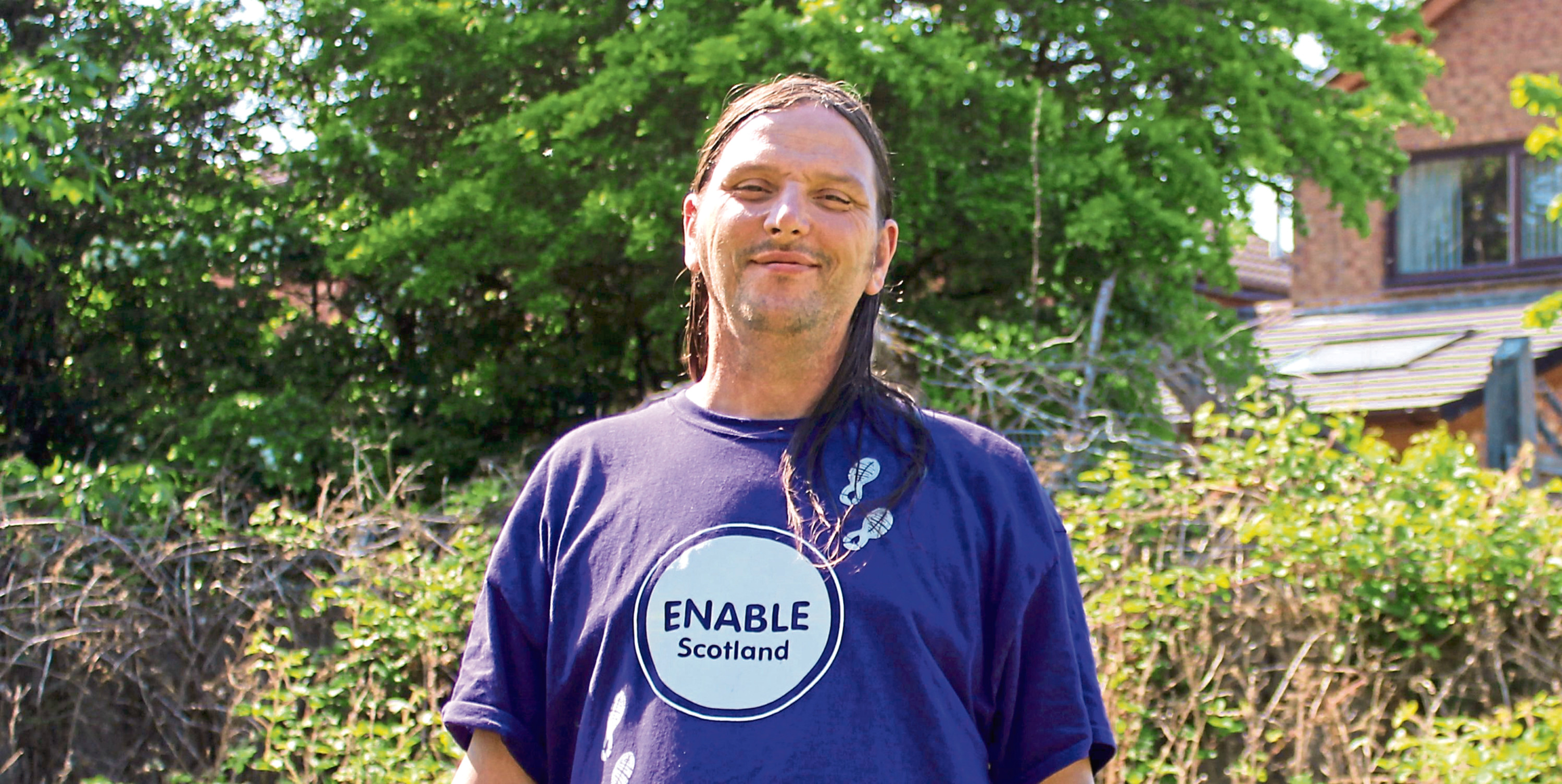
PEOPLE with learning disabilities have a significantly lower life expectancy than the general population.
Currently, the life expectancy for such people is 13 years lower for men and 20 years lower for women.
One of the reasons for this is lack of access to general healthcare, so two of Scotland’s leading charities have launched a new resource to help improve healthcare for people with learning disabilities.
The new 7 Steps to Equal Healthcare resource from charities ENABLE Scotland and Macmillan Cancer Support aims to equip healthcare professionals to support this section of the population.
John Feehan, who has a learning disability, was diagnosed with Hodgkin’s lymphoma in 2007.
“When I started feeling ill, I visited my GP several times, but no-one picked up on how serious my illness was,” says John, 45, from Prestwick.
“Eventually, it started affecting every area of my life to the point where I was too ill to do everyday tasks.
“I was told I had Hodgkin’s lymphoma after I tried to go on holiday and the airline said I was too unwell to fly.
“It was a really anxious time. I was in hospital surrounded by people I didn’t know, worrying about things like my car and my cat.
“I was in shock when I was told I had cancer and it took a long time to process what it really meant.
“Luckily, two volunteers from the Ayr and District ENABLE branch stepped in to help me. They asked some questions and took the time to find out what was troubling me most.
“People who have learning disabilities have a right to equal healthcare, and that means people who work in health and social care need to understand that some patients, like me, will need a bit of extra support during medical appointments and treatment.
“If sharing my experiences to develop this resource helps just one person with a learning disability to face cancer head on, it’ll be worth it.”
A one-year study observed the experiences of people who have a learning disability and are affected by cancer in some way, either through having the disease themselves or being close to someone who has cancer.
The findings were used to inform the resource and tools for healthcare professionals, encouraging them to consider the best way to communicate with patients with learning disabilities, their approach to describing and administering treatments and liaison with support networks such as family members or carers.
It was found that the issues people with learning disabilities experienced with their healthcare were not specific to cancer, but were related to a lack of person-centred healthcare.
For this reason, the 7 Steps to Equal Healthcare have been designed to be useful to healthcare professionals and individuals with learning disabilities regardless of what healthcare treatment or care they need.
Theresa Shearer, chief executive of ENABLE Scotland, says: “Receiving a diagnosis can be extremely difficult and daunting for anyone, but for someone with a learning disability, it can be even more distressing.
“They may be informed of their diagnosis or consequent test results at a health appointment, but may only fully understand what’s shared with them later on, when they’re in a different location, sometimes on their own and without the appropriate support.
“Through our partnership with Macmillan, we look forward to building on this work to ensure that people with learning disabilities and their families receive the best person-centred care, at what is an extremely distressing time.”
When people with learning disabilities have difficulty in accessing health services, health conditions can remain undetected and untreated.
This means mortality rates associated with treatable conditions, such as some cancers, for such people remain high.
According to the Macmillan ENABLE Partnership, the individual should always be at the heart of any treatment.
Health professionals are encouraged to view cancer pathways and treatments through the disabled person’s eyes and work with family members and carers.
The 7 Steps to Equal Healthcare resource points to examples of additional or alternative approaches in care that a person with a learning disability may require.
These include the use of clear and simple explanations of what is happening, consideration of surroundings, and help with managing issues of consent in line with the Mental Capacity Act.
Macmillan’s head in Scotland, Janice Preston, says: “Going through cancer is a very stressful time and people talk about feeling out of control.
“For those with learning disabilities, trying to understand the illness and treatment and medical speak can be even more challenging.
“We hope health professionals use this resource to better understand the needs of such people who are going through cancer.”


Enjoy the convenience of having The Sunday Post delivered as a digital ePaper straight to your smartphone, tablet or computer.
Subscribe for only £5.49 a month and enjoy all the benefits of the printed paper as a digital replica.
Subscribe